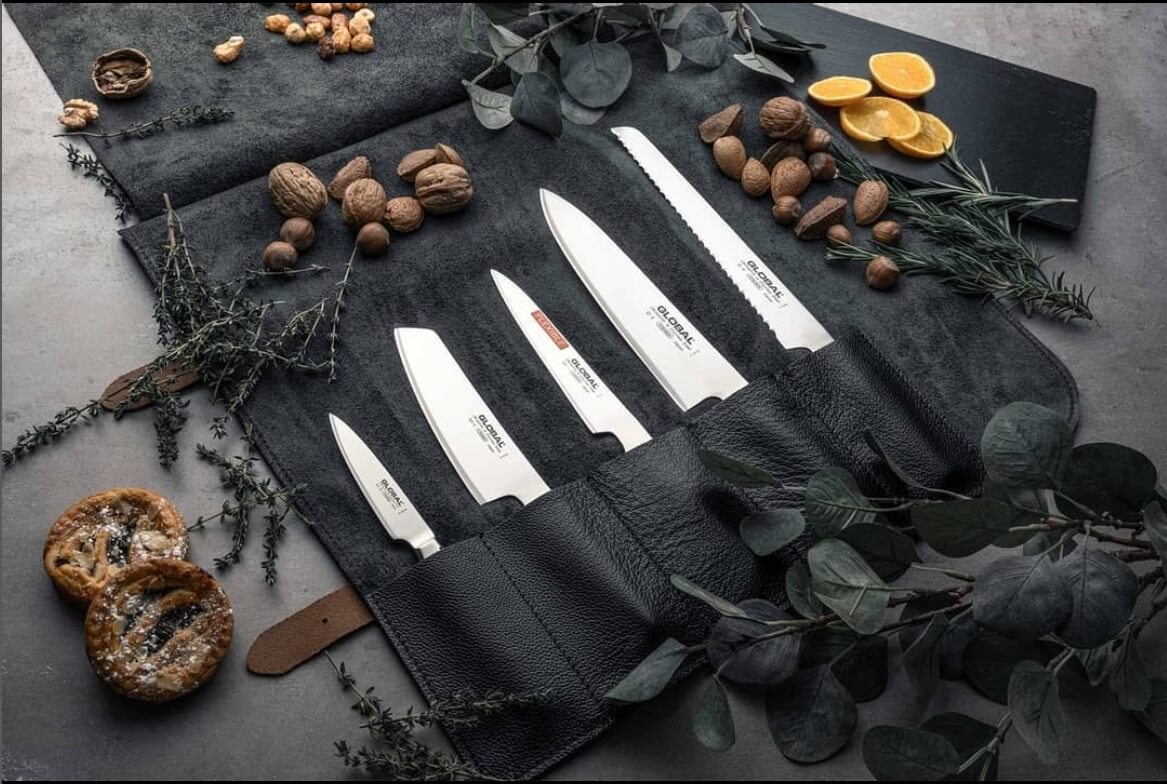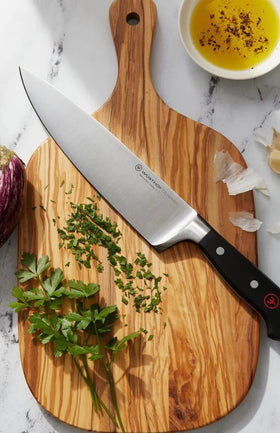
The Art and Precision of Japanese Kitchen Knives
Understanding Japan's Time-Honored Culinary Tools
In the realm of culinary craftsmanship, Japanese kitchen knives stand as a testament to centuries-old tradition and precision. Renowned for their exceptional sharpness, intricate designs, and unparalleled performance, these knives have captured the hearts of chefs and home cooks around the world. In this exploration, we highlight unique features of Japanese-made kitchen knives and the esteemed brands that uphold this legacy.
The Essence of Japanese Craftsmanship:
Japanese kitchen knives are a reflection of the country's rich heritage and reverence for skilled craftsmanship. Passed down through generations, the art of knife-making in Japan is a fusion of tradition, innovation, and an unwavering commitment to perfection. The blades are often hand-forged by master blacksmiths, resulting in tools that are not merely functional but also works of art.
Precision and Performance:
The hallmark of Japanese kitchen knives is their exceptional sharpness and precision. These knives are known for their ability to achieve paper-thin cuts with minimal effort. This precision is attributed to the steep bevel angles, often ranging between 15 to 20 degrees, which enhance the knife's cutting efficiency. Whether you're slicing vegetables or fileting fish, a Japanese knife effortlessly translates your intent into reality.
Types and Varieties:
Japanese kitchen knives encompass a wide range of styles, each designed for specific culinary tasks. The Gyuto, similar to a chef's knife, is versatile. The Nakiri excels in vegetable preparation, while the Deba and Yanagiba are indispensable for fish tasks. Each type embodies the essence of Japanese craftsmanship.
Brands Leading the Way:
In the vast world of Japanese kitchen knives, several brands have distinguished themselves:
- Shun Kitchen Knives: Known for beautiful Damascus-clad blades.
- Miyabi Kitchen Knives: A blend of Japanese craftsmanship and German engineering.
- Global Kitchen Knives: Modern design with sharp edges.
Blades of Excellence:
Japanese knives often feature high-carbon steel or blends, ensuring sharpness and durability. The layering technique in Damascus knives and the wooden Wa handles enhance their aesthetics and performance.
Care and Maintenance:
Owning a Japanese knife requires commitment. Their delicate nature demands hand washing, immediate drying, and specialized sharpening to maintain their edge and longevity.
Conclusion:
Japanese kitchen knives are a harmonious blend of tradition, artistry, and functionality. Embracing them means entering a world where each slice is a testament to centuries of craftsmanship. Elevate your culinary journey with knives that honor tradition while propelling you toward culinary mastery.






